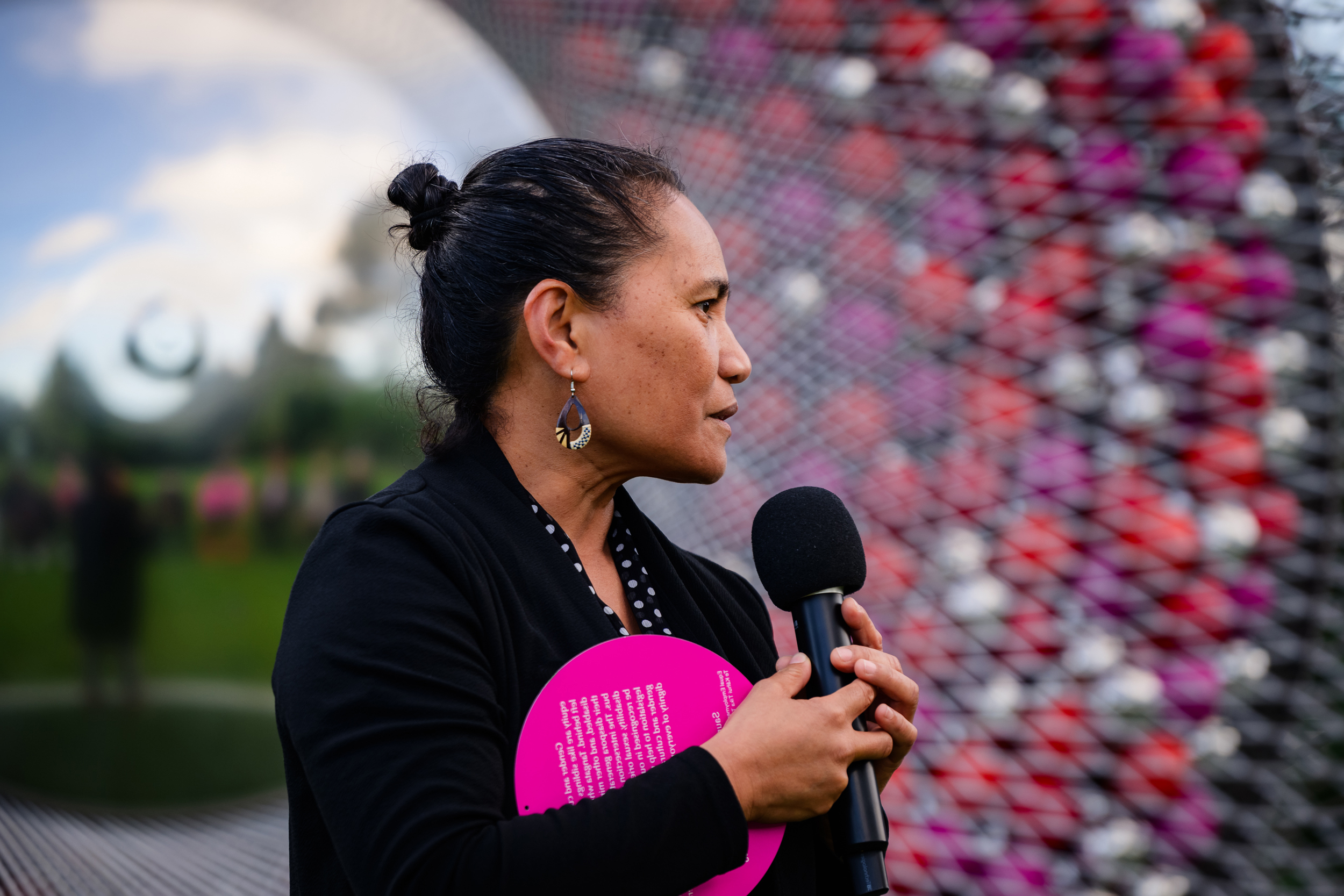Karanina Sumeo
Profile
Saunoamaali’i Dr Karanina Sumeo is a Samoan born New Zealander, originally from the village of Vailima, Upolu, Samoa. Since 2018 she has been the Equal Employment Opportunities Commissioner for the New Zealand Human Rights Commission.
In a long career across the health, welfare and education sectors, Karanina has been a staunch advocate of social and economic equity, particularly for women, Pacific people and youth. Karanina’s work on pay transparency tackles head-on the issues of ethnic and gender related pay inequity. Her leadership of the ground-breaking inquiry into the Pacific Pay Gap highlights the extent to which pay disparity is due to the invisible barriers of racism, unconscious bias and discrimination in the workplace.

Insight
Writing from an intersectional perspective, Karanina’s words reinforce the important point that equality and equity mean we must all arrive there together. Gender equality cannot be seen in isolation from the broader socio-cultural context of sexuality, race, class, age and ability. Equality for only some women, or for only some gender identities, does not represent real equality. No one can be free until all of us are free.
Using the metaphor of a bus journey Karanina tells us that not everyone is on the bus. We also know that journeys can be complex. The road from A to B is not a straight line. We are not always headed in the right direction. We think we’re getting closer only to find the destination still further away. Now more than ever as across the globe and in our own country we see the potential for hard won rights to be eroded, we need to constantly ask: who is on the equality bus and where is it headed?
Te Reo Glossary
Te Reo Glossary
ākonga
student, pupil
alofa
love, affection (Cook Islands Māori language)
Aotearoa
New Zealand
aroha
love, affection
haere rā
goodbye, farewell
hapū
subtribe, part of a kinship group
ira tangata
term used for intersex in a Māori context
irawhiti
term used for transgender in a Māori context
Itāria
Italy
iwi
extended kinship group descended from a common ancestor and associated with a distinct territory in Aotearoa
kairangahau
researcher
kaitiaki
guardian
kaitiakitanga
guardianship, stewardship
kia kaha ngā wāhine toa
be strong woman warriors
kia ora
hello, greetings
kia orana
hello, greetings (Cook Islands Māori language)
kōrero
conversation, discussion
kuia
female elder
mahi
work
māmā
mother, mum
mana
status, prestige, authority,
Māngere
a major suburb in South Auckland, New Zealand
Māori
Indigenous people of Aotearoa New Zealand
mauri
life force, life principle
moana
ocean, sea
Ōtautahi
Christchurch, city in South Island, New Zealand
Ōtepoti
Dunedin, city in South Island, New Zealand
pākeha
New Zealander of European/foreign descent
peka
branch (of a tree, river, organisation)
Pōneke
Wellington, Capital of New Zealand
rangatahi
youth, young people
takatāpui
queer, gay, rainbow community
Tāmaki Makaurau
Auckland, city in North Island, New Zealand
tapu
sacred, prohibited
tautoko
to support, advocate
Te Kāhui Tika Tangata
Human Rights Commission, New Zealand
Te Kaunihera Wahine o Aotearoa
National Council of Women of New Zealand
Te Kotahitanga
Autonomous Māori Parliament from 1892 to 1902
Te Moana-Nui-ā-Kiwa
the Pacific Ocean
te reo
the Māori language
Te Ropu Wahine Maori Toko i te Ora
Māori Women’s Welfare League
Te Wāhi Wāhine o Tāmaki Makaurau
Auckland Women’s Centre
tikanga
protocol, correct procedure
wāhine
woman, women
wāhine kaha
strong woman/women
waiata
song, chant
waiata taitoko
song of support usually sung after a speech
wairua
spirit, soul
whakapapa
genealogy, lineage
whānau
family, extended family group
whare
house, building